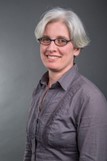Registration: https://nettskjema.no/a/493722
The workshop covers several currently understudied factors in the field of bi-/multilingualism and neurocognition and how these factors may carry more or less influence on language control demands (and thus have implications for neurocognitive adaptations) across the lifespan including connections between language learning and cognition. These factors include relative language distance, and individual differences in bilingual development. Three invited speakers will present data speaking to these factors, followed by a panel discussion and reception. The three invited speakers are:
 |
 |
 |
|
Patrick Rebuschat |
Ewa Haman University of Warsaw |
Marco Tamburelli Bangor University |
Program (abstracts on following page)
13.15- Opening remarks
13:20- Patrick Rebuschat: What can cross-situational statistical learning tell us about bilingual development and second language acquisition?
14:00- Coffee break
14:30- Ewa Haman: Multilingual development in culturally complex contexts: issues in the measurement of environmental and linguistic factors affecting language outcomes in children aged 0-7 yrs
15:05- Marco Tamburelli: Linguistic and societal factors that affect the bilingual experience
15:45-Panel discussion
16:30- Reception
Abstracts
What can cross-situational statistical learning tell us about bilingual development and second language acquisition?
Patrick Rebuschat (Lancaster University and University of Tübingen)
Statistical learning, essentially our ability to learn from the distributional properties of sensory input, plays a fundamental role in how we learn languages (Frost et al., 2019; Rebuschat, 2022; Williams & Rebuschat, 2023). Following the seminal work of Saffran et al. (1996), there is substantial empirical evidence demonstrating that infants, children, and adults can rely on statistical learning to complete a variety of linguistic tasks, from speech segmentation and phonological categorization to word learning and syntactic development. Statistical computations can be applied to a range of language units, including speech sounds, syllables, lexical categories, and syntactic phrases, but they are not limited to the domain of language. Instead, statistical learning is domain-general, i.e. it enables us to acquire information from multiple cognitive domains (language, music, etc.) and across a range of modalities (auditory, visual, tactile, etc.). Moreover, statistical learning is not unique to human learners, as non- human primates rely on statistical learning, too.
In this talk, I will review recent statistical learning research conducted collaboratively in Lancaster’s Language Learning Lab. The focus will be on experimental studies using the cross-situational learning paradigm developed by Monaghan et al. (2015). In this paradigm, participants are exposed to a novel language in ambiguous contexts under incidental learning conditions. That is, participants face the challenge of having to rapidly map novel sounds or sound sequences to multiple referents in the environment without prior information of the learning target and without feedback. To accomplish this task, participants need to be able to keep track of co-occurrence statistics across multiple learning trials, hence cross-situational learning.
In a sequence of studies, we explored the cross-situational learning of novel sounds, words and/or grammar (e.g., Ge et al., in press-a; Rebuschat et al, 2021), using either natural languages (Latin, Japanese) or artificial languages (based, e.g., on Japanese, Portuguese, German), comparing incidental or intentional exposure conditions (e.g., Monaghan et al., 2019), the effect of instructional manipulations (e.g., feedback, explicit instruction, spacing, e.g., Monaghan et al., 2021) and the role of individual differences (e.g., auditory acuity, declarative and procedural memory, working memory, e.g., Walker et al, 2019). Most of our studies have focused on adult participants (e.g., Ge et al, in press-b, 2024), but we have recently completed studies testing cross-situational learning in children. I will conclude the presentation with a reflection on the implications of this research for the study of bilingual development in children and adolescents and second language acquisition in adults.
Multilingual development in culturally complex contexts: issues in the measurement of environmental and linguistic factors affecting language outcomes in children aged 0-7 yrs
Ewa Haman, University of Warsaw
Children growing up in migrant families tend to be bi-/multilingual. Their languages develop in contexts that typically include more than one culture and that may change over time (changing quantity and quality of input in each language). This in turn will be reflected in their language outcomes. At the same time, the characteristics of their languages may play a role in developmental outcomes. To better understand how different environmental and/or linguistic factors affect children's language outcomes, we need to accurately measure many environmental, linguistic and children's language variables. Tools developed for this purpose should be cross-culturally valid and sensitive to the diversity and heterogeneity of multilingual populations.
I will present examples of such tools (e.g. StarWords app, Communicative Development Inventories CDIs, Cross-linguistic Lexical Tasks CLTs, Parents of Bilingual Children Questionnaire PaBiQ) and results obtained by the MultiLADA Lab. I will then discuss how our experience in designing and using these tools in research with bi-/multilingual children (Polish-English, Polish-Norwegian, Polish-Lx+) can contribute to the bigger picture of how environmental and linguistic factors shape language use beyond the behavioural level and how they contribute to cognitive control in multilingual speakers.
Linguistic and societal factors that affect the bilingual experience
Marco Tamburelli, Bangor University
Two key questions in bi/multilingualism research concern the extent to which the multilingual experience is affected by (1) the linguistic “distance” between the languages involved and (2) the societal/sociolinguistic setting within which the multilingualism occurs. The aim of this talk is to outline a theoretically and empirically informed framework that enables us to address those questions.
First, I will present preliminary results from current research on language attitudes which shows how different types of bilingual experience unfold in contrasting societal contexts. Second, I will discuss the concept of “linguistic distance” and the challenges posed by its measurement, drawing on recent research to evaluate potential solutions and propose workable implementations.
https://cas-nor.no/events/understanding-bi-multilingualism-life-experience